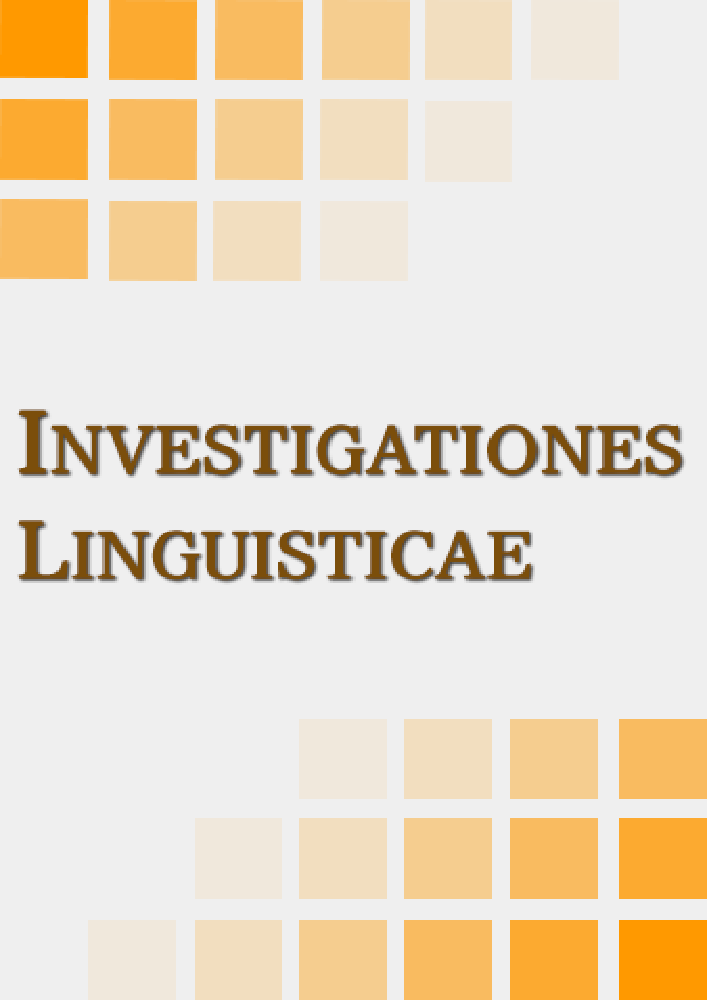Abstrakt
In the first half of the twentieth century, the fields of interlinguistics and Esperanto studies emerged as branches of linguistics focused on the study of languages designed for international communication (such as Volapük, Esperanto, and Ido). Yet, why are there specific fields to study language creation and why should linguists care about this? Looking at the history of constructed languages, this article explores the institutionalization of interlinguistics by focusing on the history of the Centre for Research and Documentation on World Language Problems (CED, in its Esperanto acronym), a research center founded in 1952 whose developments encapsulate certain aspects of this broader narrative. From an analysis of CED’s 44th Esperanto Studies Conference, in 2022, I flesh out the potential of interlinguistics to contribute back to linguistics and to the humanities disciplines that originated it. Ultimately, this article calls for the reinsertion of constructed languages into general linguistics debates.
Bibliografia
Barandovská-Frank, Vera. 1995. Enkonduka Lernolibro de Interlingvistiko. Sibiu-Hermannstadt: Editura Universităţii.
Barandovská-Frank, Vera. 2018. Concept(s) of Interlinguistics. Język, Komunikacja, Informacja 13, 15-31. DOI: https://doi.org/10.14746/jki.2018.13.1
Blanke, Detlev. 2018. International Planned Languages: Essays on Interlinguistics and Esperantology. Fiedler, Sabine; Tonkin, Humphrey (Eds). New York: Mondial.
Centre for Research and Documentation on World Language Problems – CED. 2023. Fields of activity. Available at < https://interlingvistiko.net/en/home/>. Accessed 26 January 2023.
Chomsky, Noam. 2002 [1957]. Syntactic Structures. Berlin: Mouton de Gruyter. DOI: https://doi.org/10.1515/9783110218329
Chomsky, Noam. 2006. Language and Mind. Cambridge: Cambridge University Press.
Eco, Umberto. 1994. The Search for the Perfect Language. Oxford/Cambridge, MA: Blackwell.
Fettes, Mark. 2001. The lady, the linguists, and the international language. Language Problems and Language Planning 25(2), 177-184. DOI: https://doi.org/10.1075/lplp.25.2.06fet
Fettes, Mark. Forthcoming. CED 70-jara: Vojo, bilanco, perspektivoj. Esperantologio / Esperanto Studies.
Fians, Guilherme. 2021. Esperanto Revolutionaries and Geeks: Language Politics, Digital Media and the Making of an International Community. Cham: Palgrave Macmillan. DOI: https://doi.org/10.1007/978-3-030-84230-7
Fians, Guilherme. 2022. Kontraŭ la esceptismo de Esperanto(logio): Unuapaŝa etnografia aliro al tiu studkampo. Esperantologio / Esperanto Studies 3(11), 108-131.
Fiedler, Sabine. Forthcoming. Kiel Esperantologio kontribuas/povas kontribui al aliaj fakoj. Esperantologio / Esperanto Studies.
Forster, Peter. 1982. The Esperanto Movement. Contributions to the Sociology of Language. The Hague: Mouton. DOI: https://doi.org/10.1515/9783110824568
Garvía, Roberto. 2015. Esperanto and Its Rivals: The Struggle for an International Language. Philadelphia: University of Pennsylvania Press. DOI: https://doi.org/10.9783/9780812291278
Gobbo, Federico. 2020. Introduction to Interlinguistics. Munich: Grin Verlag.
Goodall, Grant. 2023. Constructed languages. Annual Review of Linguistics 9, 419-437. DOI: https://doi.org/10.1146/annurev-linguistics-030421-064707
Jespersen, Otto. 1931. Interlinguistics. In: Shenton, Herbert; Sapir, Edward; Jespersen, Otto. International Communication: A Symposium on the Language Problem. London: Kegan Paul, Trench, Trubner.
Kiselman, Christer. 2022. Zamenhof's Yiddish Grammar and his Universal Language: Two Projects in Ashkenazi Culture. Dobrichovice: Kava-Pech.
Kuznecov, Sergej. 1989. Interlinguistics: A branch of applied linguistics? In: Schubert, Klaus (Ed). Interlinguistics: Aspects of the Science of Planned Languages (pp.89-98). Berlin: Mouton de Gruyter.
Lapenna, Ivo. 1954. La Internacia Lingvo: Faktoj pri Esperanto. London: Universala Esperanto-Asocio and Centro de Esploro kaj Dokumentado.
Lapenna, Ivo. 1974. Centro de Esploro kaj Dokumentado pri la Monda Lingvo-Problemo (CED). In: Lapenna, Ivo; Lins, Ulrich; Carlevaro, Tazio. Esperanto en Perspektivo: Faktoj kaj Analizoj pri la Internacia Lingvo (pp.669-677). London/Rotterdam: Universala Esperanto-Asocio.
Lapenna, Ivo; Lins, Ulrich; Carlevaro, Tazio. 1974. Esperanto en Perspektivo: Faktoj kaj Analizoj pri la Internacia Lingvo. London/Rotterdam: Universala Esperanto-Asocio.
Meysmans, Jules. 1911-1912. Une science nouvelle. Lingua Internationale 1(8): 14-16.
Miner, Ken. 2011. The impossibility of an Esperanto linguistics. Inkoj, Interlingvistikaj Kajeroj 2(1), 26-51.
Müller, Simone. 2016. Wiring the World: The Social and Cultural Creation of Global Telegraph Networks. New York: Columbia University Press. DOI: https://doi.org/10.7312/columbia/9780231174329.001.0001
Neergaard, Paul. 1942. La Esperantologio kaj ties disciplinoj: Taskoj kaj rezultoj. In: Thorsen, Poul (Ed). Tra Densa Mallumo: Esperanto-Eseoj pri Movado kaj Lingvo (pp.37-64). Copenhagen: Laborista Esperanto-Klubo.
Nitobe, Inazô. 1998. Esperanto and the language question at the League of Nations. In: Fettes, Mark; Bolduc, Suzanne (Eds). Al Lingva Demokratio/ Towards Linguistic Democracy/ Vers La Démocratie Linguistique (pp.62-78). Rotterdam: Universala Esperanto-Asocio.
Phillipson, Robert. 1992. Linguistic Imperialism. Oxford: Oxford University Press.
Schubert, Klaus. 1989. Interlinguistics: Its aims, its achievements, and its place in language science. In: Schubert, Klaus (Ed). Interlinguistics: Aspects of the Science of Planned Languages (pp.7-44). Berlin: Mouton de Gruyter. DOI: https://doi.org/10.1515/9783110886115
Tonkin, Humphrey. 1987. One hundred years of Esperanto: A survey. Language Problems and Language Planning 11(3), 264-282. DOI: https://doi.org/10.1075/lplp.11.3.02ton
Wüster, Eugen. 1955. La terminoj ‘esperantologio’ kaj ‘interlingvistiko’. Esperantologio 1, 209-214.
